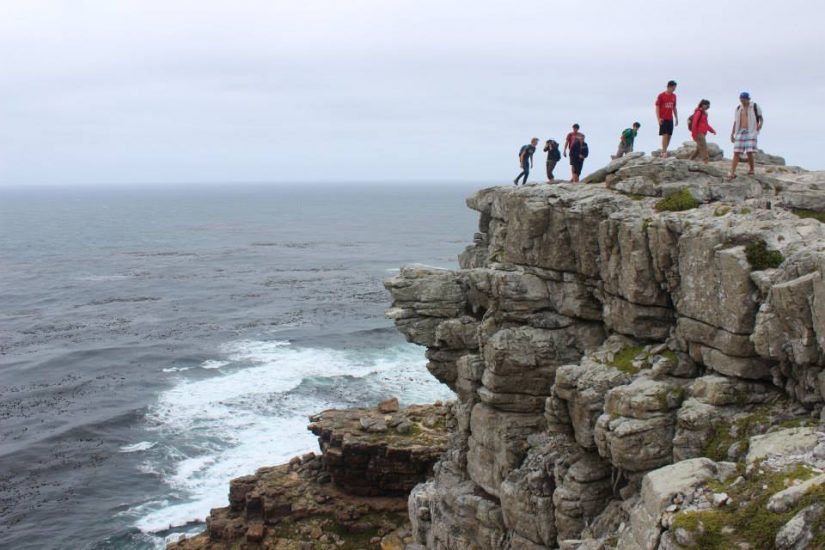It has officially been two years since my Outtatown (OT) experience. Since then, I have attended CMU and have been working towards completing a Social Science degree in Peace and Conflict Transformation studies. When I think back to my OT experience, three things stand out to me. They are lessons that continue to shape me today. OT helped me discover what it means to be in a relationship with Jesus, taught me the need for community, and helped me discover my passions.
On OT, I learned that God is SO much bigger than I had ever imagined. Before OT, I had definitely put God in a box. I had thought that I should only go to him with praises and not with my questions, fears, and frustrations. On OT I learned that God is a God of relationship. He wants us to sit with Him in silence and ask to hear His voice. Now of course these were things I had heard before, but OT gave me the chance to see whether God really would answer me and take on my burdens. He did. Throughout my experiences on OT I noticed that when I chose to tell God everything, I unknowingly became more joyful and peaceful. Since then, I have often found myself in a state of awe that God wants a relationship with me and provides me with guidance when I need it. This has been such a blessing throughout my life, especially during exam season when I’m freaking out. At this time, God gently gives me a reminder that my worth doesn’t come from my grades but that I am His child before anything else.
OT also taught me the value found in community. Not only can we have this amazing relationship with the Creator, but we can also have this deep connection with His children. Never have I ever felt more alive and encouraged than when I am with my friends who I know love the Lord and love me. Although I don’t do this as often as I should, being able to reach out to those friends for accountability when I feel like I might be going down a wrong path is super helpful. Furthermore, just being able to rejoice with them is so great. There is something different about meeting with another believer that creates an inexplicable connection. It is like if you play a sport or an instrument and you find out somebody else plays that same sport or instrument, boom! There is this instant connection. Often you know that the other person will just get the struggles that come with needing to constantly practice the piano or the joy you find when your team wins a game. Unfortunately, when people do not play that sport or instrument, you cannot connect with them in the same way. This ‘connecting experience’ is similar to the community I have experienced with the family of God.
Finally, OT allowed me to discover passions that I never realized I had. Being exposed to some realities that some Canadians face, such as homelessness, prostitution, gangs, and racism opened my eyes to a whole new, unseen world. Of course I was aware of these different realities, but by no means did I think that they were so prevalent in this country. I had also never talked to anybody who had experienced them. Furthermore, without realizing it I had developed many stereotypes growing up that I was completely oblivious to. However, they very quickly came crumbling down as we began to learn about these topics. To this day I have tried to put myself in situations that others might think I’m crazy for. For example: joining a ministry that aims to build relationships with sex workers or hanging out with those that live on the streets. To put myself in these situations is important to me because although society might tell us that we are different and should be divided racially, socially, and economically, OT made it clear that this notion is a lie. We are equal, God made us all beautiful, wonderful, and to be in relationships in which we can lift one another up. Although I am not one hundred percent sure what I’ll do with my Peace and Conflict Transformation degree, I hope that I can incorporate this mentality in my future endeavors.
In conclusion, after two years, Outtatown has very much stayed with me. It has greatly shaped the way I view God, community, and social justice. I think that Outtatown was a great step in my life—it most definitely is a cornerstone that I will look back on and praise God for. I know this may sound cheesy but OT is often seen as an end; however I see it as a beginning. It is the start of a new adventure where one can learn many valuable lessons that they can apply for years to come.
Emilie Roussis is one of CMU’s Student Ambassadors

